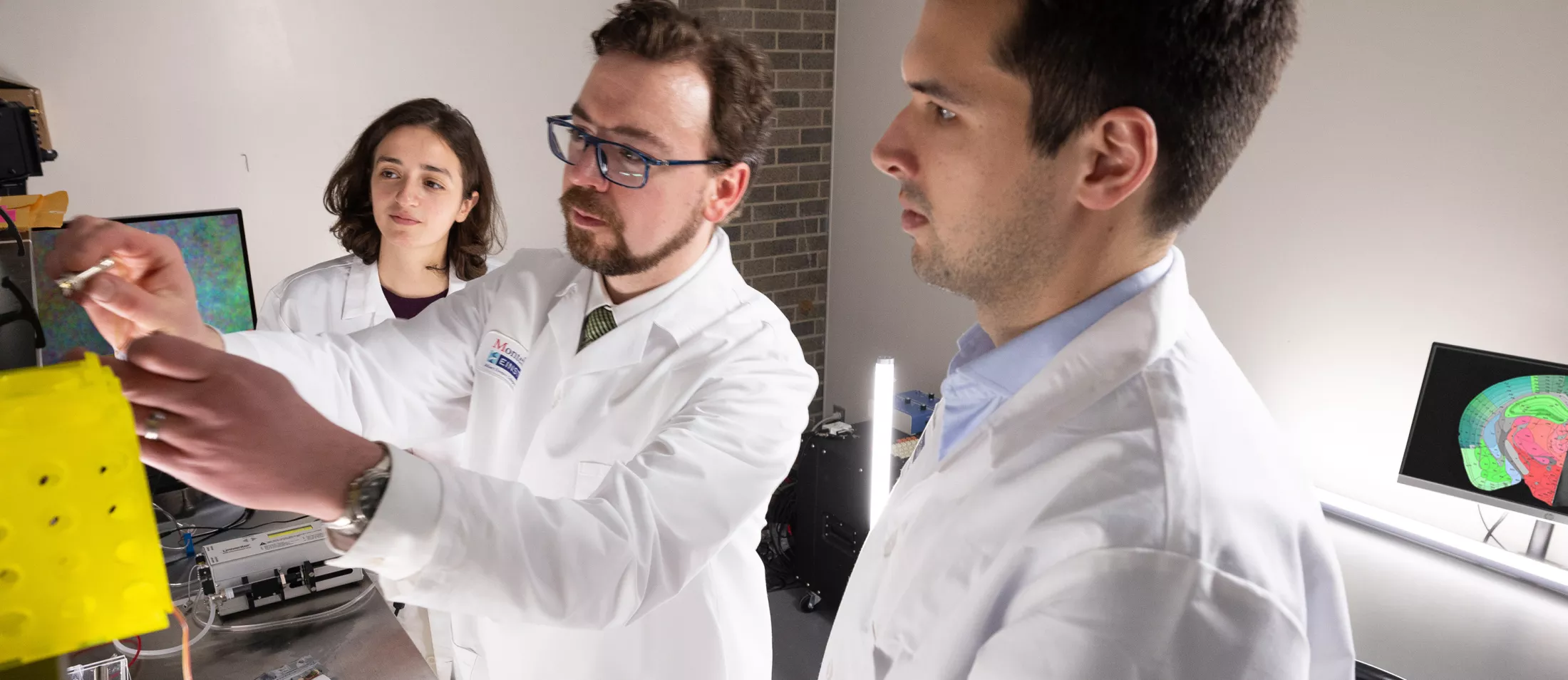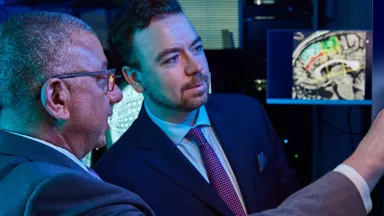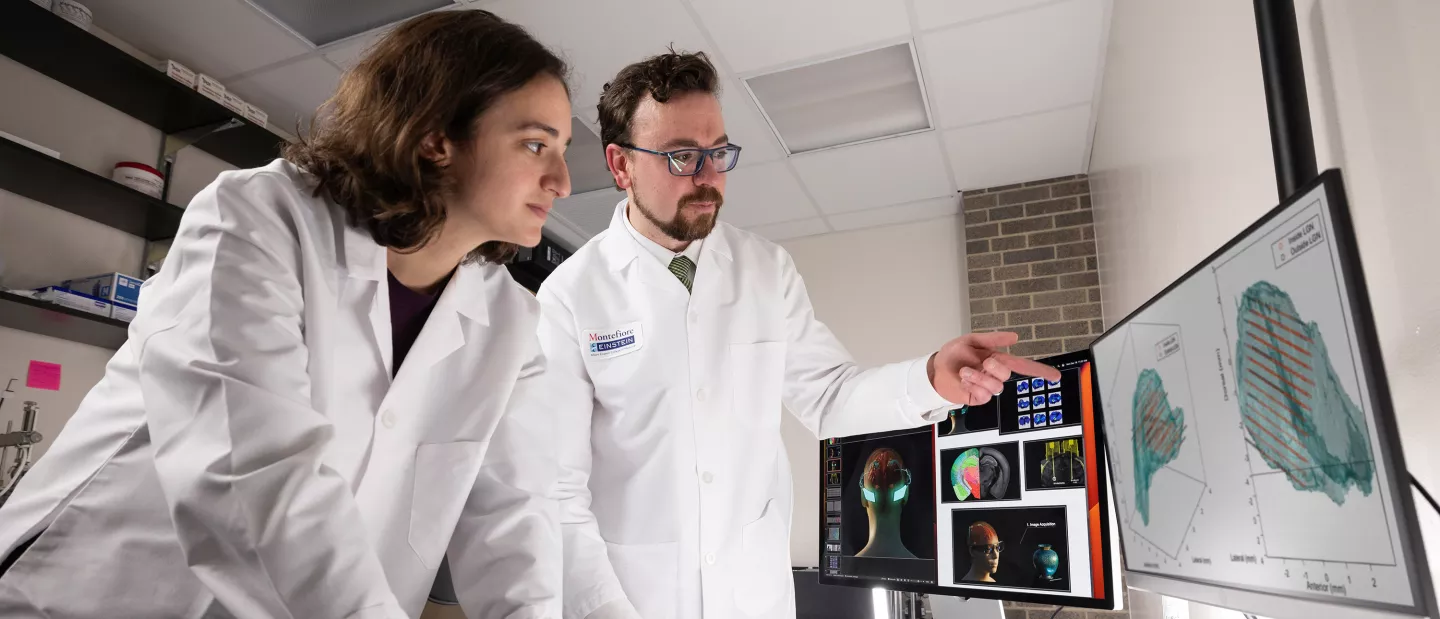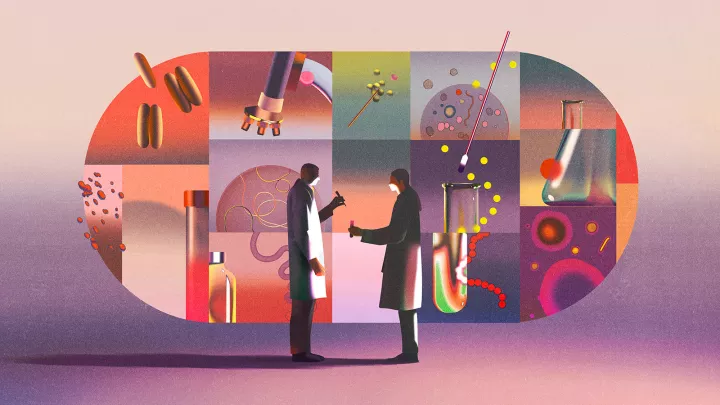Overview
We aim to enhance our understanding of the neuronal underpinnings of behavior in complex brain networks, focusing on brain systems involved in visuospatial learning and memory. In addition, we seek to transform the knowledge gained from our research into clinical neural interface applications. To support these goals, we develop technologies and techniques to accelerate experimental work and anticipate translation.

Areas of Concentration
We have made significant advances in the research areas of neural prostheses (Front Psychol. 2016, Sci Rep. 2016), bidirectional neuronal interfaces (Front Neurosci. 2016), visuospatial cognition (Nature 2012, PNAS 2015), and the relationship between cortical connectivity and recognition memory.
Working with Dr. Elizabeth Buffalo at Emory University, we advanced our understanding of the representation of visual space in the entorhinal cortex (EC) through single-unit and field potential electrophysiology in awake, behaving monkeys. In addition, we have reported on the interlaminar functional connectivity of the EC as it relates to the novelty of visual stimuli and the strength of memory formation (Killian and Buffalo, submitted).
With Dr. Steve Potter at Georgia Tech, we developed an in vitro brain-machine interface testbed for thick neuronal tissue constructs.
As an NIH NRSA (F32) recipient at Massachusetts General Hospital, working with Dr. John Pezaris, we advanced our understanding of non-classical receptive fields in the lateral geniculate nucleus (LGN) and built the non-human primate artificial vision paradigm. We successfully trained monkeys, over the course of years, to use a visual prosthesis by learning associations between discrete points of visual activation and the letters of the Roman alphabet (Sci Rep. 2016). I then designed, built, and implanted a prosthetic device composed of bundles of 64 to 128 platinum-iridium microwires chronically implanted in each LGN. The wires evoked distinct, reproducible artificial visual percepts called phosphenes.
We are currently focusing the efforts of our research team on visuospatial representations that subserve learning and memory.
Selected Publications
Quezada A, Ward C, Bader ER, Zolotavin P, Altun E, Hong S, Killian NJ, Xie C, Barista-Brito R, Hebert JM. An In Vivo Platform for Rebuilding Functional Neocortical Tissue. Bioengineering, 2023.
Killian NJ, Buffalo EA. Grid cells map the visual world. Nature Neuroscience, 2018.
Killian NJ, Vurro M, Keith SB, Kyada MJ, Pezaris JS. Perceptual learning in a non-human primate model of artificial vision. Scientific Reports, 2016.
Killian NJ, Watkins PV, Davidson LA, Barbour DL. The Effects of Auditory Contrast Tuning upon Speech Intelligibility. Frontiers in Psychology, 2016.
Killian NJ, Vernekar VN, Potter SM, Vukasinovic J. A Device for Long-Term Perfusion, Imaging, and Electrical Interfacing of Brain Tissue In vitro. Frontiers in Neuroscience, 2016.
Killian NJ, Potter SM, Buffalo EA. Saccade direction encoding in the primate entorhinal cortex during visual exploration. Proceedings of the National Academy of Sciences of the United States of America, 2015.
Killian NJ, Buffalo EA. Distinct frequencies mark the direction of cortical communication. Proceedings of the National Academy of Sciences of the United States of America, 2014.
Mapping the primate lateral geniculate nucleus: A review of experiments and methods. Jeffries AM, Killian NJ, Pezaris JS. Journal of Physiology- Paris, 2014.
Killian NJ, Jutras MJ, Buffalo EA. A map of visual space in the primate entorhinal cortex. Nature, 2012.
Hales CM, Zeller-Townson R, Newman JP, Shoemaker JT, Killian NJ, Potter SM. Stimulus-evoked high-frequency oscillations are present in neuronal networks on microelectrode arrays. Frontiers in Neural Circuits, 2012.
Nathaniel J. Killian, Ph.D.
About Nathan Killian, PhD
Dr. Killian is a co-founder of Raven Neuro, Inc. and is supported by the Philip V. and Anna S. Brown Foundation and a grant from the Sarah K. de Coizart Perpetual Charitable Trust.
We accept applications for postdoctoral and technician positions and welcome Einstein graduate students for rotations. If interested, please email: Nathaniel.Killian@einsteinmed.edu







